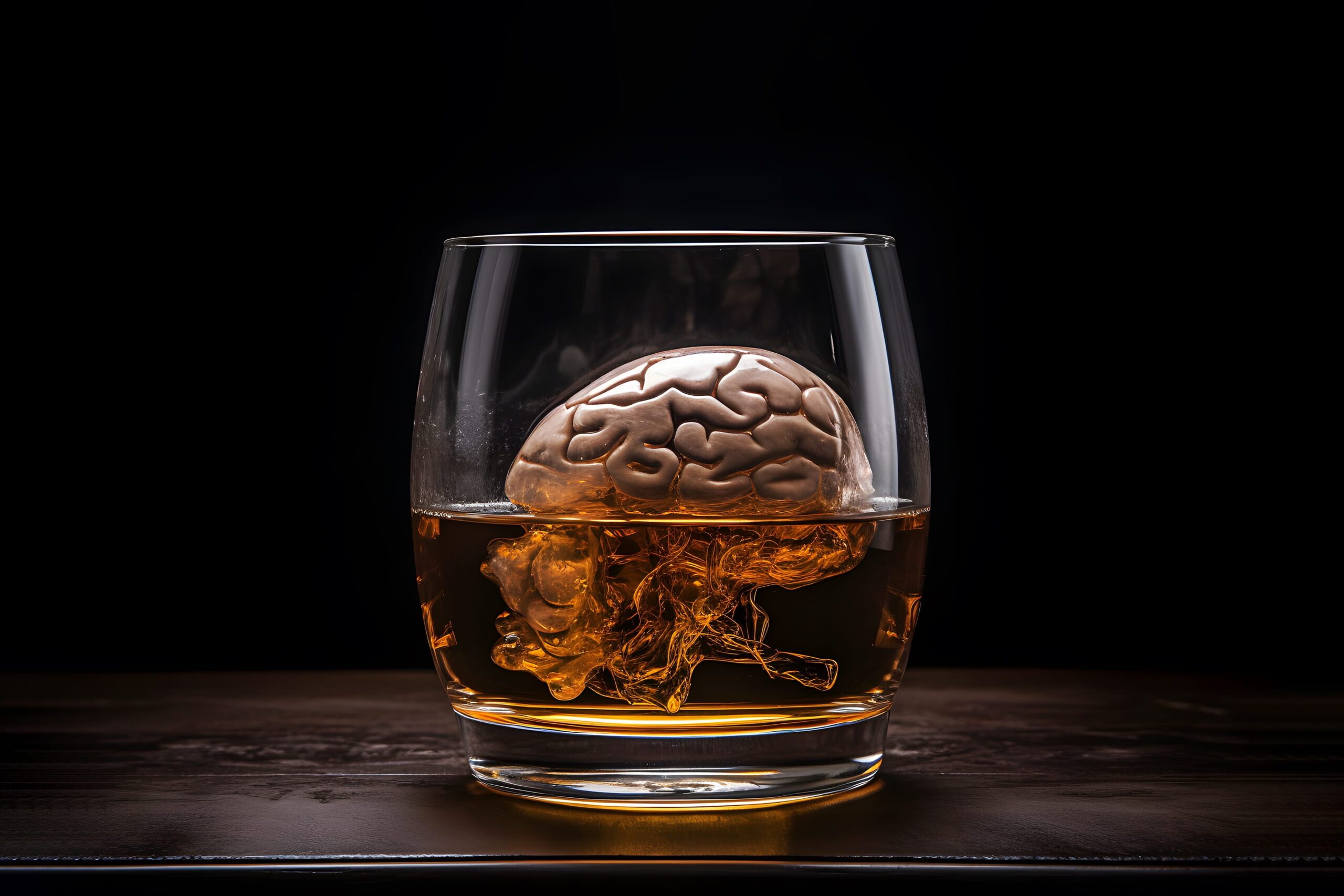Alcohol dementia is a potential long-term side effect of prolonged alcohol use and alcohol addiction. It is a progressive condition that advances through several stages, eventually leading to detrimental impacts on mental well-being and cognitive functioning. Understanding the dangers of alcohol can help people determine when they need help with their drinking problem and take steps for an alcohol-free future.
Alcohol-Related Dementia Overview
Alcohol-related dementia is a cognitive impairment disorder caused by chronic and excessive alcohol consumption. Prolonged heavy drinking can lead to profound damage in various areas of the brain responsible for memory, learning, and overall cognitive function.
What Are Its Effects?
Individuals affected by dementia may experience difficulties with thinking, problem-solving, attention span, language skills, and motor coordination. This condition typically develops gradually from the toxic effects of alcohol on brain cells. It is important to recognize the severity of this condition as it affects not only individuals who are addicted to alcohol but also their loved ones who witness the progressive decline in mental capabilities and overall quality of life.
How Does Someone Get Alcohol Dementia?
Alcohol-related dementia is primarily caused by long-term, excessive alcohol consumption. The exact mechanism of how alcohol leads to dementia is not fully understood, but it is believed to involve a combination of factors.
Chronic and heavy drinking can cause direct toxic effects on brain cells, leading to cellular damage and death. Alcohol-related deficiencies in essential nutrients like thiamine (vitamin B1) may also contribute to cognitive impairment. Additionally, repeated episodes of alcohol withdrawal can further increase the risk of developing dementia.
Stages of Alcohol Dementia
Alcohol-related dementia progresses through three different stages.
Stage 1: Mild Cognitive Impairment
In this early stage, individuals may exhibit subtle difficulties with memory and cognitive functions such as planning and organization. There might be occasional forgetfulness or trouble finding words during conversations. However, these symptoms may go unnoticed or be attributed to being under the influence of alcohol.
Stage 2: Moderate Cognitive Decline
As alcohol dementia progresses to this stage, cognitive impairment becomes more pronounced and affects daily functioning significantly. Memory lapses become more frequent and noticeable, impacting the ability to remember recent events or learn new information. Individuals may have difficulty concentrating, struggle with problem-solving tasks, experience confusion in familiar surroundings, and display changes in mood and behavior.
Stage 3: Severe Cognitive Decline
Significant impairments characterize this advanced stage. Memory loss becomes severe, where individuals struggle to recognize loved ones or recall basic personal information like their own name or address. Communication skills deteriorate further as speech patterns become fragmented, comprehension continues to decline, and physical coordination worsens.
Alcohol Dementia and Mental Decline
The final stages of dementia are characterized by:
- Profound Memory Loss
- Severe Communication Difficulties
- Drastic Personality Changes
- Loss of Physical Functioning
- Increased Dependence on Caregivers
Alcohol Withdrawal: Overview of Symptoms
Alcohol withdrawal occurs when an individual significantly reduces or discontinues alcohol use after drinking for a prolonged period. It also occurs during supervised alcohol detox. Withdrawal symptoms can vary in duration and intensity, depending on various factors, like how often alcohol is used, the amount consumed, and the severity of alcohol dependence.
Common alcohol withdrawal symptoms include:
- Tremors: Involuntary shaking or trembling, usually affecting the hands but can also affect other parts of the body.
- Anxiety: Feelings of restlessness, uneasiness, irritability, and nervousness.
- Nausea and vomiting: Upset stomach leading to feelings of queasiness and potentially vomiting.
- Headaches: A throbbing or pulsating sensation in the head often associated with discomfort.
- Sweating: Profuse sweating as the body attempts to rid itself of the toxic effects of alcohol.
- Insomnia: Difficulty falling asleep or staying asleep during regular sleep hours.
- Restlessness: Feeling agitated and unable to remain still from withdrawal discomfort.
- Rapid heartbeat: An increased heart rate and elevated blood pressure.
- Hallucinations: Hearing or seeing things that are not there.
- Delirium tremens (DTs): DTs is a serious condition characterized by confusion, disorientation, agitation, hallucinations, rapid heartbeat, and high blood pressure.
Treatment for Alcohol-related Dementia
Treatment for alcohol-related dementia focuses on managing symptoms, providing support, and improving overall quality of life. Furthermore, since dementia is irreversible, treatment attempts to slow down the progression of cognitive decline and address associated behavioral and psychological difficulties. Various approaches can be used in the management of dementia.
For starters, people often undergo alcohol addiction treatment that includes detox and personalized car plans for learning how to live alcohol-free. Depending on specific symptoms and individual needs, medications may be prescribed to manage alcohol withdrawal symptoms, cognitive impairment, depression, anxiety, sleep disturbances, aggression, or agitation.
Cognitive rehabilitation therapy is often used. This involves techniques for enhancing memory function, attention span, and problem-solving abilities. Additionally, encouraging healthy habits like balanced nutrition and physical activity contributes to overall well-being.
Techniques such as communication strategies tailored to the person’s impairments can help maintain meaningful interactions despite speech or comprehension challenges associated with dementia.
Minimize the Risk of Alcohol Dementia
Minimizing the risk of alcohol dementia necessitates proactive measures. Including, seeking safe and effective alcohol addiction treatment. At OARC in Columbus, OH, our comprehensive addiction treatment programs offer a pathway to recovery. Thereby, addressing the underlying factors contributing to alcohol abuse.
Through personalized care, evidence-based therapies, and ongoing support, individuals can regain control over their alcohol consumption, reducing the likelihood of cognitive decline and dementia. Take the first step toward a healthier future by reaching out to OARC, where compassionate professionals are dedicated to guiding you on your journey to sobriety and cognitive well-being.
Contact us today to start your recovery journey to a brighter future.






